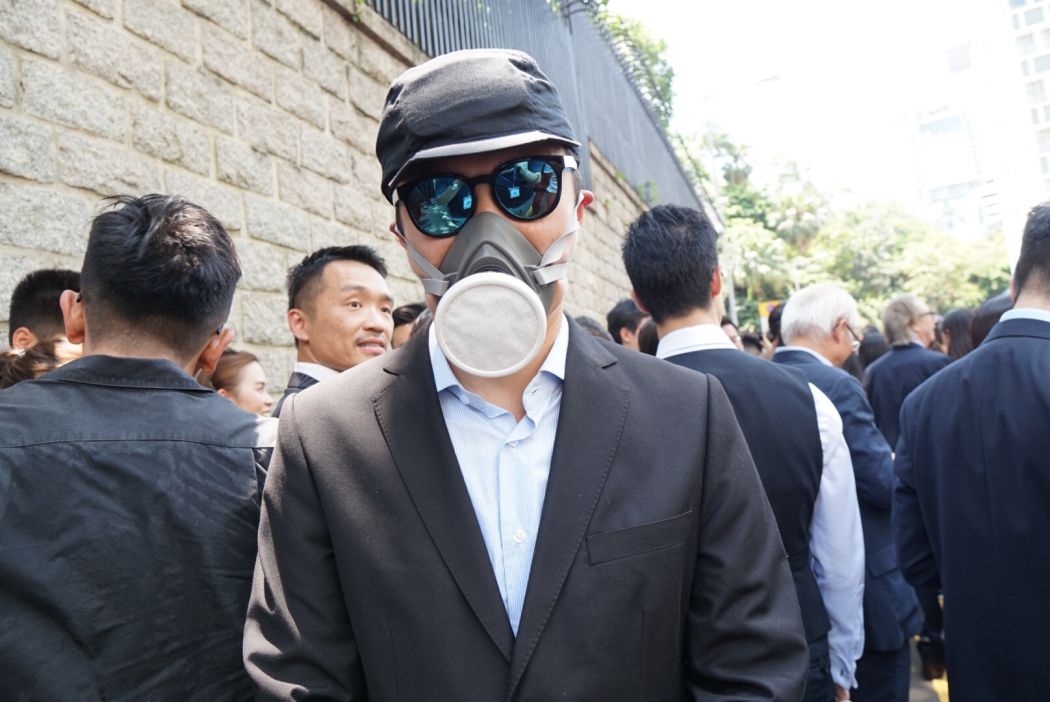By Paul Klein
The crisis in Hong Kong continues unabated and some of the world’s largest businesses need to make an important decision: maintain a positive relationship with mainland China or uphold their reputation in the territories and in other parts of the world.
In Hong Kong, business is the territory’s lifeblood. Hong Kong came third in the 2019 Global Financial Centres Index and is home to corporations that rank in the Forbes Global 2000 companies. These include China Mobile, Cnooc and Hutchinson Whampoa. These multibillion-dollar businesses are directly involved in or impacted by this conflict.

Cathay Pacific’s recent actions show how challenging the situation is for business leaders. Earlier this month, CEO Rupert Hogg resigned amid mounting Chinese regulatory scrutiny of the Hong Kong carrier over the involvement of its employees in the city’s anti-government protests. At the same time, Cathay chairman John Slosar said recent events had put its reputation and brand under pressure the consequences of which may result in a loss of trust and business from mainland passengers. It’s also likely that they will lose passengers from the Territories and other parts of the world who believe that businesses such as Cathay Pacific should make a positive contribution to social change.
“In the spirit of corporate citizenship and civic-mindedness, the private sector itself must assume a responsibility to help prevent and mitigate conflict,” said Marjatta Rasi, in 2004 at a meeting of Security Council of the United Nations. “Today, it is widely accepted that the private sector has a primary responsibility in building economic and social well-being.”
Fifteen years later, the role of business in social change is recognized as being even more important. Starbucks has taken a stand against guns, Silicon Valley executives have pressed the U.S. government to provide more visas for foreign-born engineers and Nike sided with athlete Colin Kaepernick’s “take a knee” political activism regarding policy brutality and racism against African-Americans.

In 2004 the Security Council of the United Nations recognized that local businesses should be directly involved in peacebuilding, as they “have a true vested interest in peace and stability.” Today, corporations in Hong Kong have an opportunity to lead the development of a new approach to business in the territory that puts democratic reform, rule of law and human rights ahead of all other concerns.
As a first step, business leaders in Hong Kong should demonstrate their collective commitment to support the rights and safety of all employees and customers irrespective of influence from the mainland. This can be put into practice by establishing safe spaces for employees and customers. These could be physical spaces within their operations where citizens could take haven or virtual spaces such as message boards where employees and others have an opportunity to share their views without censorship or impunity.
Further actions should involve partnering with civil society organizations in the development of new programs that better address socio-economic concerns of young people in Hong Kong and help to prevent conflict in the future. In particular, the gap between wages and cost of living in the territory.

The risks of not taking action are real. Hong Kong is a gateway to business in the pacific but it’s no longer the only game in town. Cities such as Manila, Singapore and Kuala Lumpur are quickly growing to be financial powerhouses and provide a more socially responsible option to doing business in Hong Kong. Further, institutional investors such as Blackrock have established a new standard for socially responsible investing that may put the financing of Hong Kong-based corporations in jeopardy.
Most importantly, consumers will be the deciding factor. In particular Millennials and Gen Zers whose loyalty is to businesses have made human rights a priority and can be trusted to address the social concerns of employees, customers and communities. This is also becoming important in mainland China. “The focus for Cathay right now is still damage control for its branding,” said BOCOM International analyst Luya You. “Its reputation among mainland passengers continues to falter, which could lead to more long-lasting damage that is harder and takes longer to rebound from.”
There’s a Chinese proverb that says “When the winds of change blow, some people build walls and others build windmills.” Choice is never easy but let’s hope Hong Kong’s business leaders opt for the windmills.
Paul Klein is the founder and CEO of Impakt, a B Corp that helps organisations benefit from solving social problems. He has written for Forbes, The Guardian, Stanford Social Innovation Review, and the LSE Business Review.
